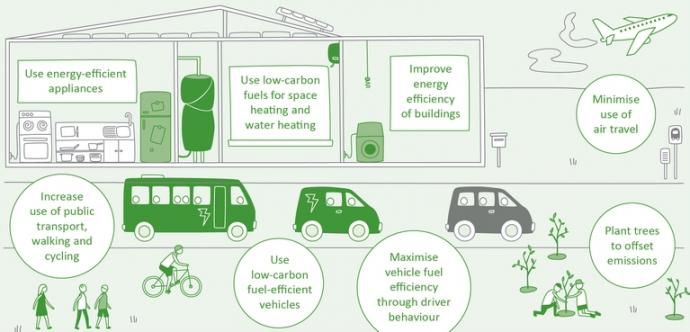CWEH Blog 5 March 2019
Stuart Richard Peters
German Energy Transition: How to be clean and dirty at the same time?
The German energy transition (Energiewende) to a low-carbon economy has received a huge amount of publicity and undoubtedly given the country’s green credentials a huge boost. Overall, the policy has many admirable aims, however, aspects of its implementation have emerged gradually that would suggest some harsh realities have hit home. By themselves these threaten to cast a long dark shadow over how ‘green’ the transition will actually be. On the one hand, Germany has invested massively in wind and solar power, yet on the other hand, it is now looking as though it will have to maintain a heavy reliance on coal over the long-term. From one perspective, this is a case of ‘back to the future’! The vacuum created in electricity generation, following the decision to shut down the country’s nuclear industry by 2022, has so be filled by something. Due to capacity constraints among other things, renewables are not in a position to plug this substantial gap.
The first link is a report that looks into why Germany will have to extend its reliance on coal until the 2030s:
The second link is a report about German government backing to cut down a forest and build a vast new lignite (brown and polluting) coal mine for the purpose of electricity generation.

India: The most polluted country in the world
A very illuminating report recently appeared in the Financial Times that analysed the extremely high levels of air pollution in India and the costs to human health and the environment. The scale of the problem is vast, the sources of pollution are numerous, and again coal has a significant role to play in all of this. As with the same as Germany, despite a determination to move away from a heavy reliance on fossil fuels, ridding itself of a dependence on coal is going to prove an enormous uphill struggle. The link can be found below:
https://ig.ft.com/india-pollution/
Large hydropower dams: To be ‘dammed’ or not?
A good report can be found on the BBC website about the popularity of building large hydropower dams as countries seek to move away from a reliance on fossil fuels and towards cleaner sources of power. As the report argues, these type of dams are not ‘sustainable’ in a number of ways. They do not always provide the large amounts of cheap electricity as expected, have damaged the environment in a myriad of ways, and led to the displacement of millions of people.
The link can be found below:
https://www.bbc.co.uk/news/science-environment-46098118
Interestingly, what these reports suggest is that policymakers and governments alike are all are very keen to ‘gloss over’ the enormous magnitude of the transition to a low-carbon economy for obvious reasons. The usual strategy is to emphasise the promotion of wind and solar power, but when it comes to the less palatable aspects there is a distinct lack of any mention of specifics or detail. It’s all too easy for the purposes of public relations to persistently ‘bang the drums’ of wind and solar power. It can easily foster a widespread impression that practical steps are being taken towards reducing the heavy reliance on fossil fuels and it’s all relatively straightforward. Not much to worry about then! However, when one scratches below the surface a little more it’s not hard to find the more inconvenient aspects of the transition to a low-carbon economy. Needless to say, for example, any government that’s intent on building a large hydropower dam hardly wants the ‘havoc’ that such a project generates to receive widespread publicity.
Banner image: http://www.ft.lk/article/482633/Green-finance:-Financing-the-transition-towards-a-low-carbon-economy
Content image: https://unitec.researchbank.ac.nz/handle/10652/3594


